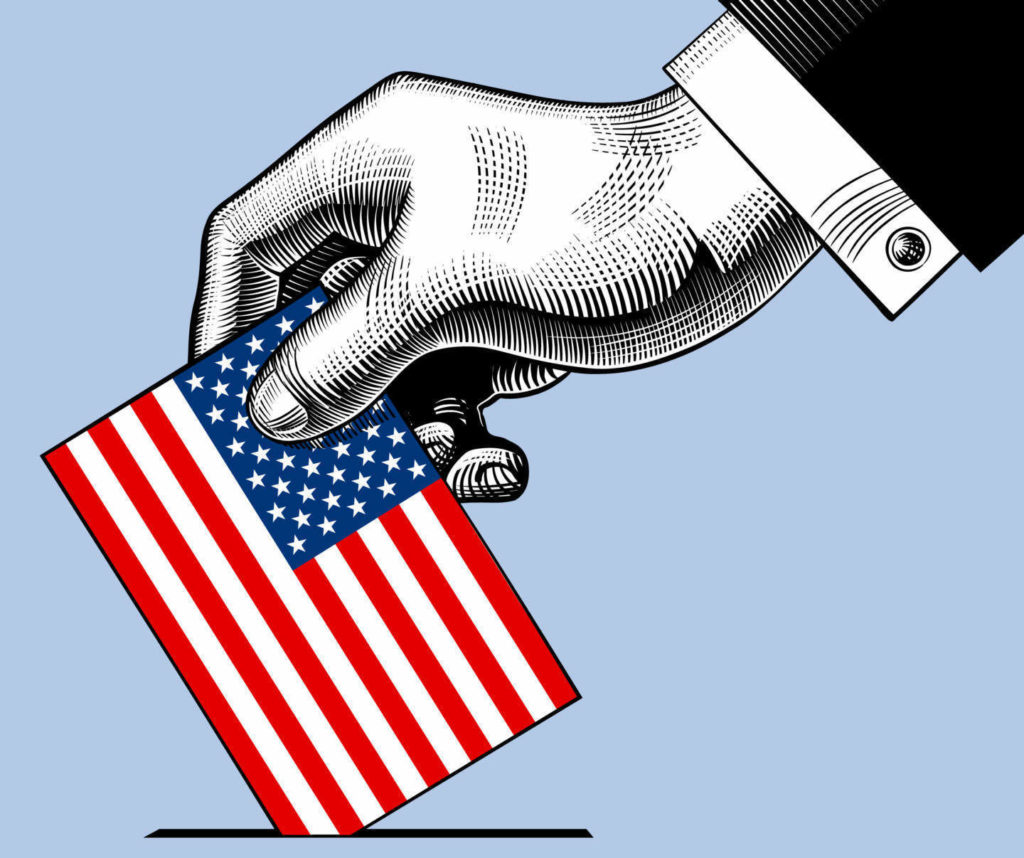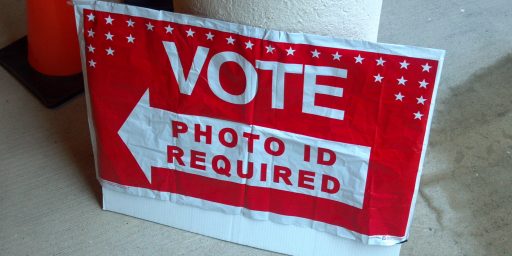One More about GA’s SB202
And, really, all of this current wave of election legislation.

I want to stress how context is so very important in understanding Georgia’s new elections law, as well as various similar legislation across the country. Fundamentally none of this activity can be understood apart from the big lie told (over and over and over again) by Donald Trump that the election was stolen from him. That lie was echoed by right-wing media and by politicians allied with the former president. That lie helped motivate a crowd of insurrectionists who stormed the US Capitol on January 6, 2021. And, perhaps worst of all, that lie led eight Senators and 139 Representatives to vote against at least one slate of electors.
That lie is poisonous to basic governance in the United States because it massively undercuts the foundational process by which power is allocated. That is, it makes huge numbers of people doubt the validity of our elections. And that undercutting sets the stage for additional anti-democratic acts. After all, there was an attempt by Trump and his allies to overturn the election results. While that attempt was unsuccessful, it did temporarily disrupt the constitutional process of counting votes as well as waste a lot of time in the courts. We saw, also, discussions at high levels about things like using state legislatures to overturn the electoral vote of a given state.
None of this is minor, and should not be forgotten because all’s well that ends well (by which I mean the process did ultimately function as it was supposed to). Not only should we not forget, we should not engage in activity to promote the lie.
And yet, that is what a lot of state legislatures are doing by proposing and passing these laws.
The message is clear: something went wrong in 2020, and we are going to fix it. That sends a dangerous reinforcing signal to the lie that Trump won and that he lost only because of massive fraud.
There was no massive fraud (and, indeed, no proof of anything other than minuscule micro-fraud). Team Trump repeatedly refused to even try and prove fraud in court. Sidney “Release the Kraken” Powell is currently defending herself in a defamation suit from Dominion Voting Systems by stating that no one could possibly have believed her in the first place.
Specifically, via NBC News: Sidney Powell’s legal defense: ‘Reasonable people’ wouldn’t believe her election fraud claims.
“No reasonable person would conclude that the statements were truly statements of fact,” Powell’s attorneys said in a court filing defending her against a billion-dollar defamation lawsuit from Dominion Voting Systems, the manufacturer of the election equipment she claimed was involved in the conspiracy to steal the election.
Further, from the filing (linked in the paragraph above),
Additionally, in light of all the circumstances surrounding the statements, their context, and the availability of the facts on which the statements were based, it was clear to reasonable persons that Powell’s claims were her opinions and legal theories on a matter of utmost public concern. Those members of the public who were interested in the controversy were free to, and did, review that evidence and reached their own conclusions—or awaited resolution of the matter by the courts before making up their minds. Under these circumstances, the statements are not actionable.
The problem, of course, is that a rather large number of people did take all of this seriously, to one degree or another.
And states that have immediately moved to reform their elections laws are playing into that narrative, full stop.
Further, these laws have been passed because of delusion, profound dishonesty, or substantial cynicism (and the categories are not wholly exclusive). By delusion, I mean that if legislators really do think they are solving a serious fraud problem with these new laws this is problematic because their foundational premise is flawed. Dishonest if they know better and are passing these laws anyway, and cynical if they are doing so as a means of capitalizing on lie-fueled perceptions to further their own party’s electoral fortunes.
My guess is that most of this is pure cynical exploitation of the moment. And, as I noted in a previous post,
Empirically, both parties are clearly pursuing voting-legislation strategies that they think will aid them at the polls. This is a political fact that is utterly predictable. However, it also objectively true that legislation being pushed by Democrats is aimed at making it easier to vote and for voters to be treated equally. Republicans are clearly pushing for rules that making voting harder and that privilege some voters over others.
Normatively, therefore, one can choose sides based on partisan preference, but I would note that if one is pro-democracy (small “d” and all), then one ought to prefer the Democratic reforms over the Republican ones.
As a result, I would rather stridently argue that any assessment of these laws has to take this context into account.
All of this is to ask and answer the question: “how seriously should we take all of this?” I note this because there is something of a debate taking place in regards to such assessments. (Spoiler: we should take it seriously, even if specific laws are not as onerous as the rhetoric sometimes suggests).
Nate Cohn, for example, has a very reasonable piece in the NYT‘s The Upshot (Georgia’s Election Law, and Why Turnout Isn’t Easy to Turn Off) that concludes,
That doesn’t mean the Georgia law or other such laws are without consequence. Many make voting more difficult, enough to intimidate or discourage some voters. Many outright disenfranchise voters, even if only in small numbers. Perhaps the disenfranchisement of even a single voter merits outrage and opposition, especially if the law is passed on dubious or even fabricated grounds, and with Jim Crow mass disenfranchisement as a historical backdrop.
But setting aside intent, it does mean that many such voting provisions, like that in Georgia, are unlikely to have a huge effect on turnout or Democratic chances.
He is, I think, empirically correct. There are good reasons to think that the SB202 will only have a marginal effect on turnout. Provisions like the ban on line warming, for example, may motivate defiant turnout rather than the other way around.
Look, taken in a vacuum, the Georgia law is not a major shift. I do think that the net result of the law is to make voting harder for no appreciable/defensible gain of any kind. And on those grounds alone, I oppose it. But the only reason it is worth the attention it is getting is the context noted above and the fact that is a national wave of one party trying to trying to reduce voting access in a way that is clearly designed to harm their opponents.
As such, I agree with Scott Lemieux at LGM, who describes Cohn’s article as a “plea for complacency” as well as his assessment that “This is a bad law, restricting the vote in many ways in order to address imaginary “voting fraud,” and there’s no reason to be complacent about it.”
Look, I understand where Cohn is coming from. One seeks to be analytical and deal not with the emotions of the moment when assessing these kinds of things. And, again, in a vacuum, this law is, while not great, hardly an existential threat to Georgian democracy.
But again, context, context, context.
Lemieux points to a piece by Elliot Morris (The focus on electoral math obscures the bigger story on Georgia’s new voting laws) who underscores the problem here (emphasis his):
The problem with the Georgia law is not that it might decrease turnout or help Republicans, it’s that it was clearly intended to do so. The backlash to the clear attempts at voter suppression are being driven at least as much by the ethical and moral concerns of limiting political participation as it is by concerns that they might turn the state red by limiting the franchise. That, by the way, seems totally plausible to me: in close elections, small changes can make big differences.
He discusses this, as does Cohn, in the context of whether the political science literature shows that changes like those in Georgia are likely to lead to significant shifts in turnout. He agrees with Cohn that the provisions of the law are unlikely to shift turnout much. I have no reason to argue with that myself. But Morris and I agree that whether or not turnout in Georgia will be affected it normatively matters if a party is going to go out of its way to attempt to make voting harder, whether they are successful at it or not.
He asks, in conclusion to his piece, “Should the response to attempted voter suppression really be all that different just because the laws might have a smaller-than-expected chance of succeeding?”
And, indeed, the answer is no.
So, while I understand that some analysts are seeking to look solely at the provisions and their likely effects, I think that the broader context cannot be ignored. So, yes, some of the rhetoric around these bills is overwrought (welcome to politics), the overall context is one that is anti-democratic and based on lies, which matter more than whether a given provision is really all that bad or not.






Dreher at TAC did a post on the reasonableness of the GA law and decrying how the elites are authoritarians forcing fairness on us. I’ll paste the comment I left there.
The last bit is in reference to
Dreher’s reaction is a perfect example of Corey Robin’s thesis in The Reactionary Mind. Beyond saying conservatism is always reaction to liberals trying to extend rights to the excluded, Robin says the anti-elitist element of Trumpism is actually normal in the history of conservativism. The reactionary poluli wouldn’t have to be defending the nation against the “others” if the elites weren’t failing in their duty to exclude them.
It seems to boil down to “MY vote is more special and deserving than YOUR vote. Your vote is unimportant and shouldn’t be allowed because YOU aren’t ME.” Put this way, it sounds at least as stupid and self-serving as any of the drivel supporting voting suppression I’ve been reading/hearing for the past week.
I laughed at the time, but Cipolla’s essay about the five basic laws of human stupidity seems more accurate the older I get. My goodness, but they’ve been breeding like cockroaches since then. We have an infestation of them in legislative bodies.
Great essay that really highlights the important context behind all of this.
And that is true. Biden won by about a quarter of a percent. They don’t need much. And as I noted above, this may be performative vote suppression more than real, but performative keeps the base fired up over the “stolen election” nonsense.
First, cosign the post. Great analysis as always.
Beyond that, I thought this was a pretty good analysis of the law: https://threadreaderapp.com/thread/1378394751339261961.html
Great post. For me personally, this reminds me of an old intelligence rule-of-thumb:
Threat=capabilities+intent
To put a spin on that, it seems to me that you’re essentially trying to balance capabilities vs intent when it comes to GA’s election law. I like that because that balance and judgment are really at the heart of the work I used to do. There usually are no easy answers. Judging intentions is hard. Evaluating capabilities is also not easy. Balancing the two is often the most difficult part. Political Science (or any professional discipline) can only take you so far. Context does matter a great deal, yet context is also subjective.
My interpretation is that you’ve focused on intentions as the most relevant variable in the equation, which I can’t really argue with.
@Andy:
Is it? Is it really? In this case? With the history of the past few months and the past 50 years?
There are finer details in intent that we cannot see. Do they want to subvert democracy to keep themselves in power? Yes. Are they using racially disparate methods because they are personally racist, or just because their supporters are racist? I don’t think it matters.
@Andy: “Judging intentions is hard.”
In this case, it’s easy.
@Gustopher & @Barry:
I’d say this case is easier than most.
But as a general rule, judging intentions is harder than most people believe, as has been demonstrated time and again in cognitive and behavioral studies. As a species, we are primed to think we’re good at judging others and their intentions, especially “enemies” and those in tribal outgroups, when in reality we are usually really bad at it.